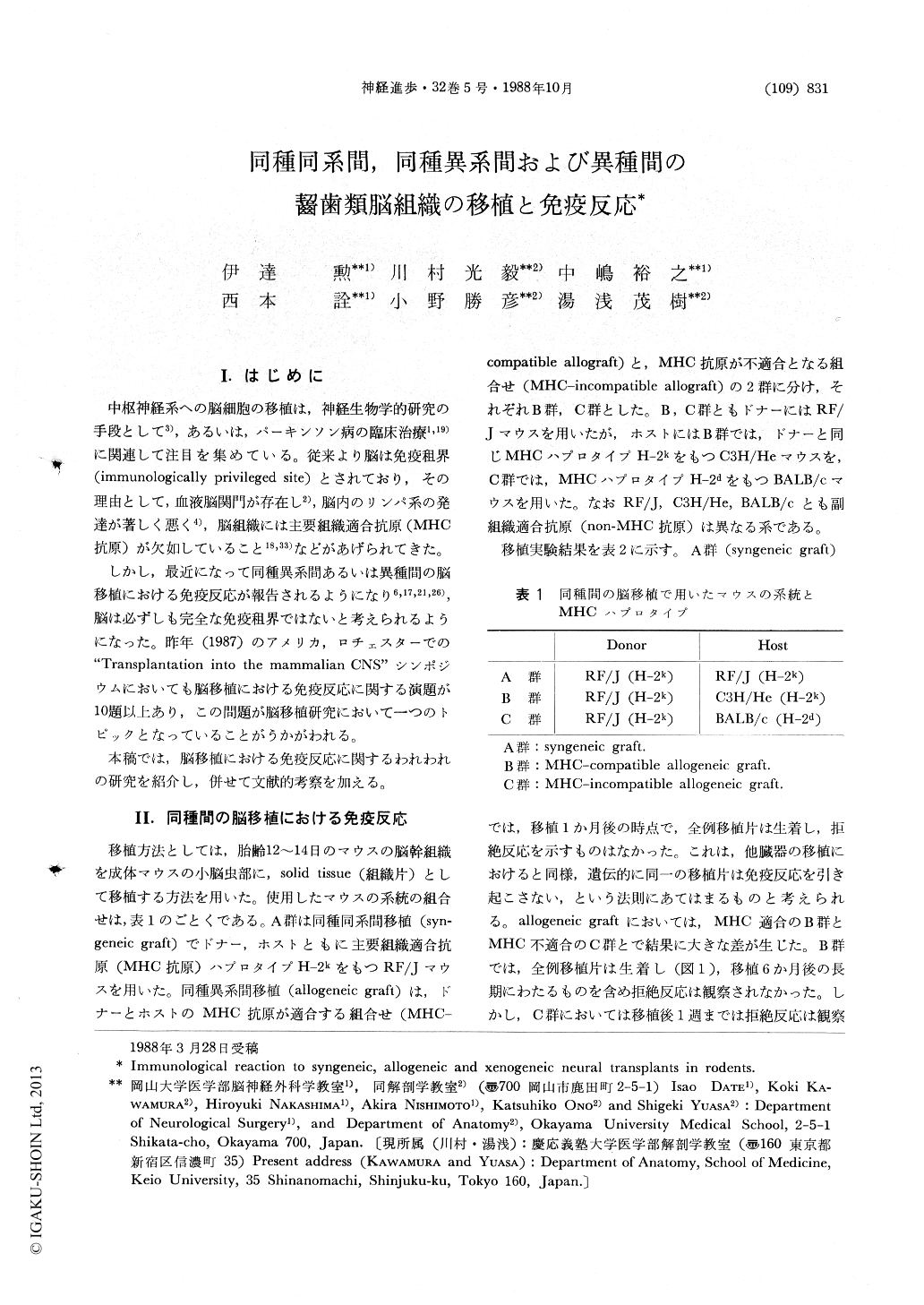Japanese
English
- 有料閲覧
- Abstract 文献概要
- 1ページ目 Look Inside
I.はじめに
中枢神経系への脳細胞の移植は,神経生物学的研究の手段として3),あるいは,パーキンソン病の臨床治療1,19)に関連して注目を集めている。従来より脳は免疫租界(immunologically privileged site)とされており,その理由として,血液脳関門が存在し2),脳内のリンパ系の発達が著しく悪く4),脳組織には主要組織適合抗原(MHC抗原)が欠如していること18,33)などがあげられてきた。
しかし,最近になって同種異系間あるいは異種間の脳移植における免疫反応が報告されるようになり6,17,21,26),脳は必ずしも完全な免疫租界ではないと考えられるようになった。昨年(1987)のアメリカ,ロチェスターでの"Transplantation into the mammalian CNS"シンポジウムにおいても脳移植における免疫反応に関する演題が10題以上あり,この間題が脳移植研究において一つのトピックとなっていることがうかがわれる。
The central nervous system of mammals has been considered one of the immunologically pri-vileged sites. However, this concept has been undergoing change, since rejection of histoincom-patible neural grafts is commonly observed.
We examined immunological reaction against intracerebellar syngeneic, allogeneic and xenogeneic neural transplants into the rodent brains. Syn-geneic and major histocompatibility (MHC)-com patible allogeneic transplants showed no histolo-gical signs of rejection, such as neovascularization, cellular infiltration and necrosis, even 6 months after grafting. Most MHC-incompatible allogeneic transplants, however, showed rejection responses one month after grafting. Survival of xenogeneic transplants apparently increased with the treat-ment of immunosuppressive agent Cyclosporin A.

Copyright © 1988, Igaku-Shoin Ltd. All rights reserved.


